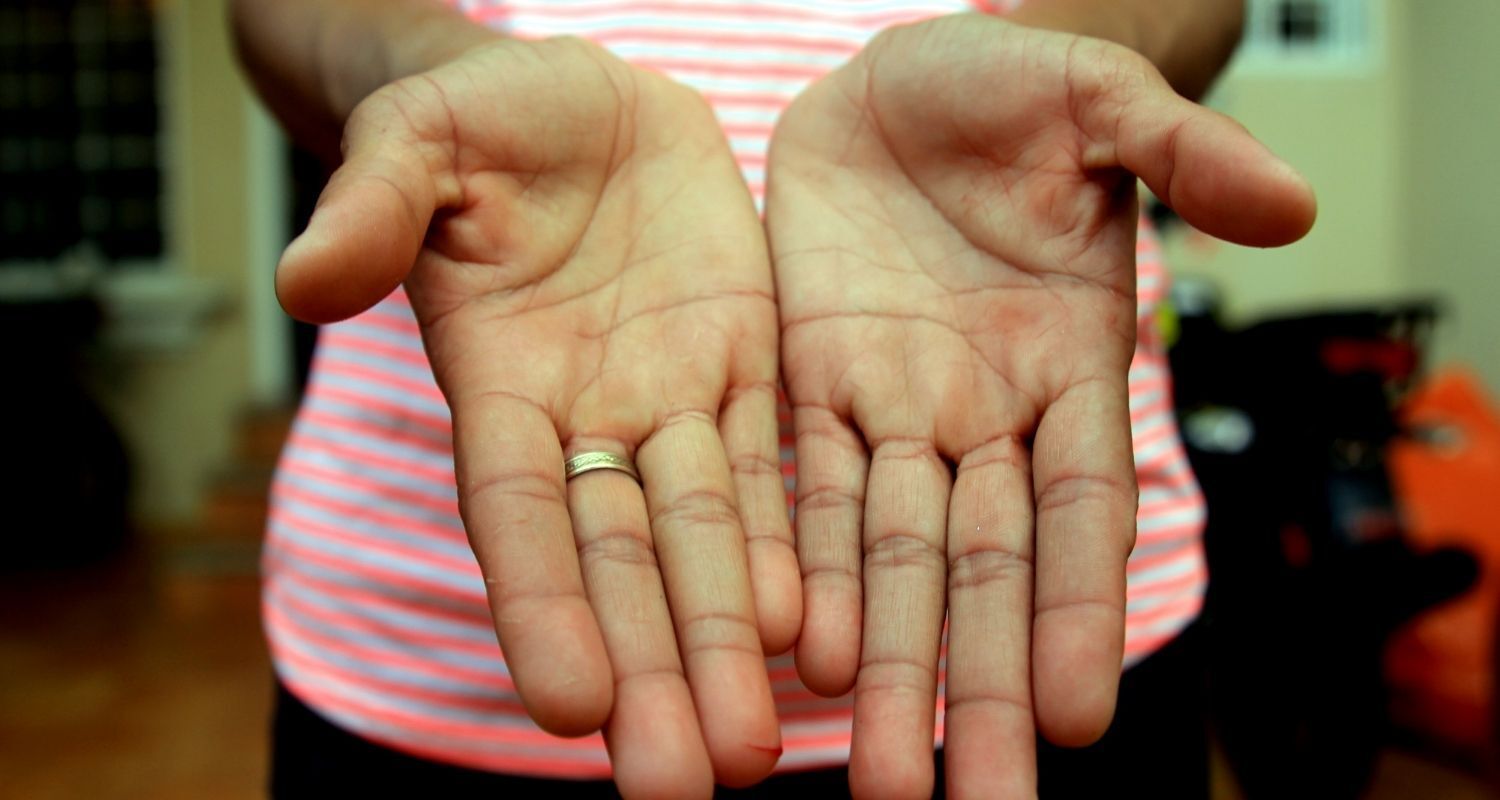December 4, 2016
She walks the hallways of the government institution, her face blank. As a security guard, it’s her responsibility to ensure that people don’t sit on the floor, that they don’t go through closed doors, or throw trash.
For 12 hours a day without a break, six days a week, she paces the same corner of the building.
“No one really sees me,” she says. She feels invisible.
Érika Sánchez* was born in Tegucigalpa, Honduras, the second of four children. Her older brother has special needs, and so it was always her who cared for her younger siblings and helped her mother with her small sewing business.
Because of the needs of her family, Érika, like so many young Hondurans are forced to do, left school after sixth grade to look for work.
When she turned 18, she was hired by a cleaning company contracted to clean the public teaching hospital. After a few months, she started to feel a strong pain in her back that made it difficult to stay standing all day. She went to the doctor, who told her she should get an X-ray, but appointments were only available during work hours.
She asked her supervisor for permission, who told her she could have three days off, but he wouldn’t pay her for the days. Looking at how little she made each month, Érika decided not to go and kept working through the pain.
Two months later, when they said they would renew her contract, they fired her instead.
“For me, it wasn’t just,” she said, but she didn’t know who to bring the case to, so she started looking for other work.
Érika was desperate. Her wages had helped take care of her three siblings as well as her mother, who had fallen sick. She looked for work for almost a year, getting by on odd jobs and a weekend waitressing gig.
“You can’t find work here,” she said, “You can look and look and look and not find anything.”
Desperate, she went to a public university to see if they needed cleaning women. They didn’t, but a security guard heard her asking and told her they were looking for more guards.
“After the interview, they called me that Monday to start a two-month trial period,” Érika said.
She went into to sign a contract, but when she started to read through it, the supervisor lost her patience. “The women gave me the contract and said, if I really needed work, I had to sign.”
So Érika signed.
She started the next day, the 27th of the month, though they told her she wouldn’t make it onto the payroll until the first of the next month, essentially working those four days for free.
When she was on the payroll, it was as a “trial employee”, which earned her a monthly wage of $260, over $100 below the legal minimum wage. They promised her that after two months, she would be signed for a six-month contract, and her salary would be raised to $347. After six months at this wage, though, employees had to return to the “trial period” at the lower salary, getting around legal restrictions that required re-contracted employees to be granted the right of permanent employees.
Érika knew her salary was too low, but she was excited to have a stable income. That was before the reductions started.
“First they send you to a life insurance and medical insurance company,” she said. These payments were $17 a month, about two days’ wages. They took money out of her paycheck for her uniform, her ID card, and even the baton she was given.
Then after two weeks of work, her supervisor called a meeting.
The weekend before, a projector had gone missing in one of the buildings. He accused the guards of having stolen it, and when no one admitted to the theft, “He took $35 out of all of our salaries,” said Érika. “They never showed us a receipt or anything about how much it cost, I don’t think it could have cost as much as that.”
“I don’t think it’s just,” she said, “I didn’t have anything to do with it.”
Her work is tiring. She works 12 hours a day, from Monday to Friday, and 11 hours on Saturday. Only on Sundays can she rest a little.
“We as guards don’t have time to rest,” she said. “If we want to relax a little, all we can do is walk to stretch our legs.”
“My second day of work I didn’t even want to get up,” she said, “the first day takes it out of you.”
If a supervisor sees a guard leaning against a wall or, worse, sitting to eat something, they yell at them and call them out in front of all the guards at all-staff meetings.
Everyone’s afraid of the supervisor. Once, Érika says, he found a coworker eating tacos at the students’ food court. He grabbed the guard by the collar and shouted, “Stand up!” taunting the guard in front of the students, who began to laugh.
“They don’t respect employees,” says Érika, “They just tell us, “our office is full of people who want to work.” But we’re not slaves either, we have our rights.”
Érika calculates her salary like someone who’s used to counting every cent. After two weeks, plus four extra days of work, “My first paycheck was for $105.52,” she says, “I know that’s not even minimum wage. We know the university pays about $900 for each guard each month, and we’re not even getting our full $350.
“This month I was supposed to get $260, but because of the projector and the reductions I went home with only $208, and that’s barely enough for food.”
“I told one of my friends, I don’t know who should feel more ashamed – them for depositing so little into my account or me for going to get it.”
When money is only enough for necessities, it’s serious when companies don’t pay on time. Last week’s paycheck was one day late. “Everyone was angry,” she says, “My coworker had to borrow money because she didn’t have the 50 cent fare to get home.”
This young security guard has almost given up on her dreams. Although she only finished elementary school, she thinks she would like to study nursing someday. But when she only has Sunday free to rest or study, she says it’s not possible. Now, she’s put her hope in her younger sister, the only one in her family who has made it to high school.
Maybe Érika’s sacrifices will make her sister’s dreams come true. Maybe this tiring work will be worth it. Érika still dreams of a day where she could work only eight hours a day, spending more time with her family and friends. But she isn’t looking for a new job.
“Just think about how long it took me to find this job!” she says. “It’s hard sometimes,” she says, “but there really isn’t any other choice.”
*Name changed for security



















